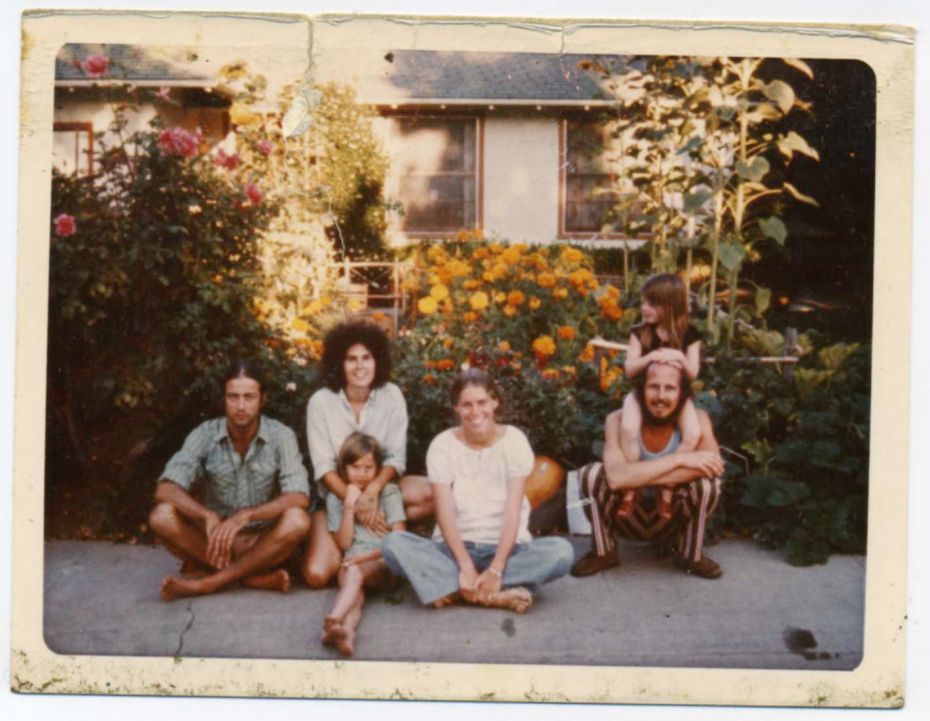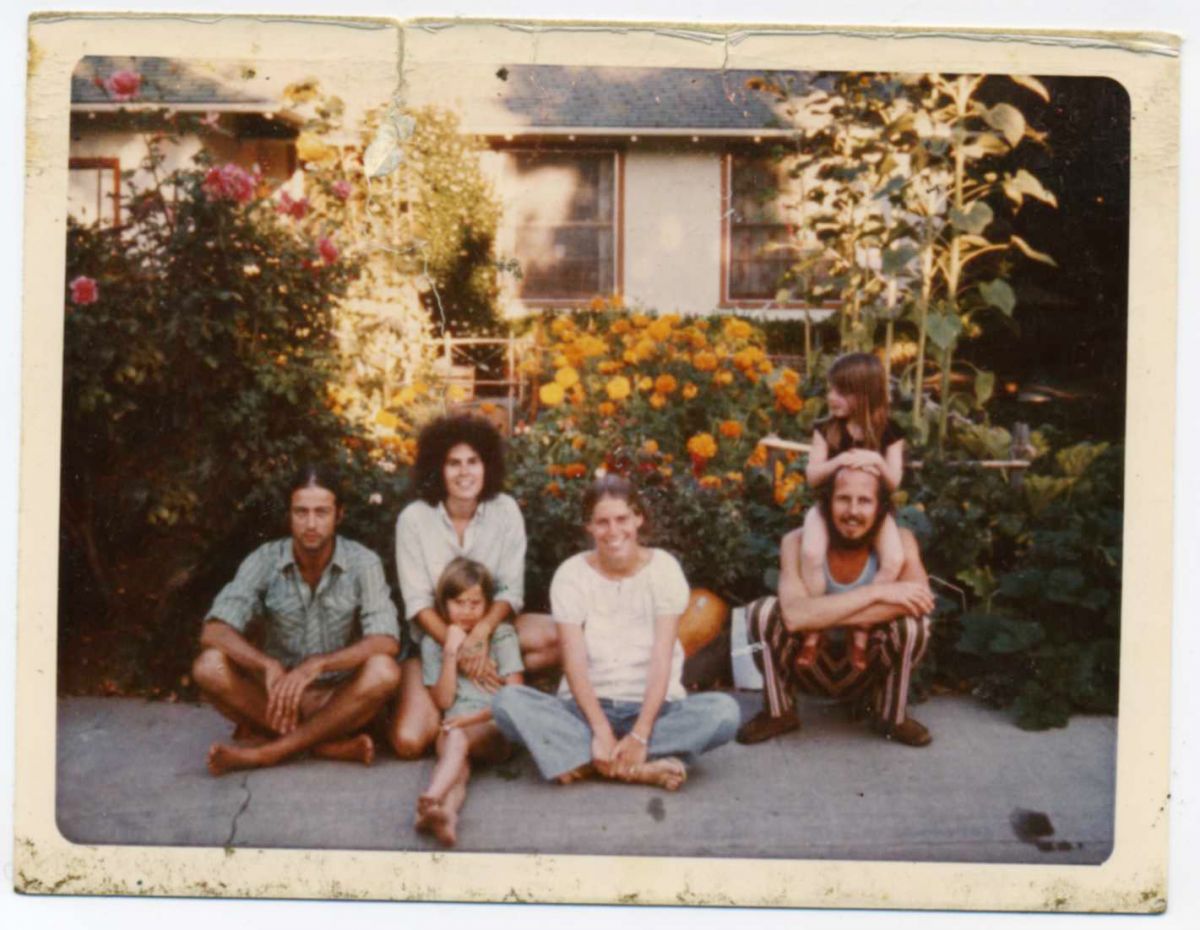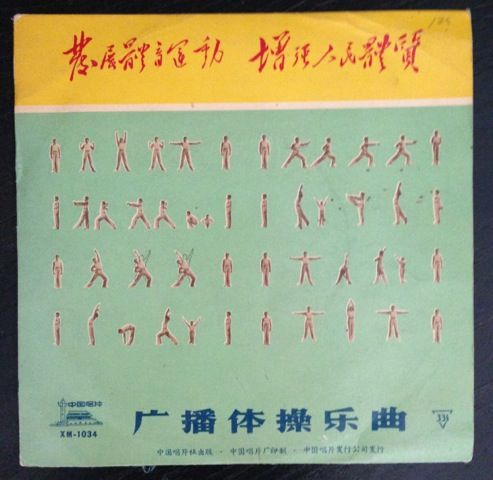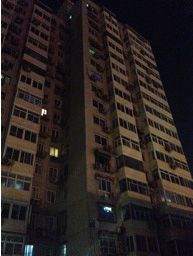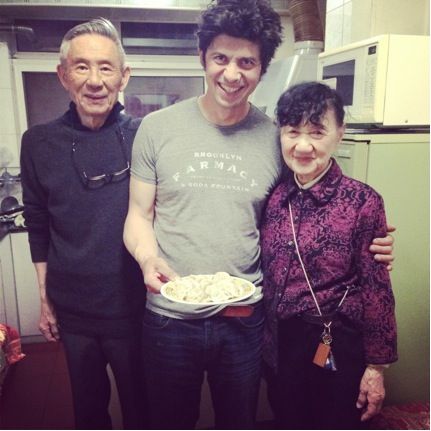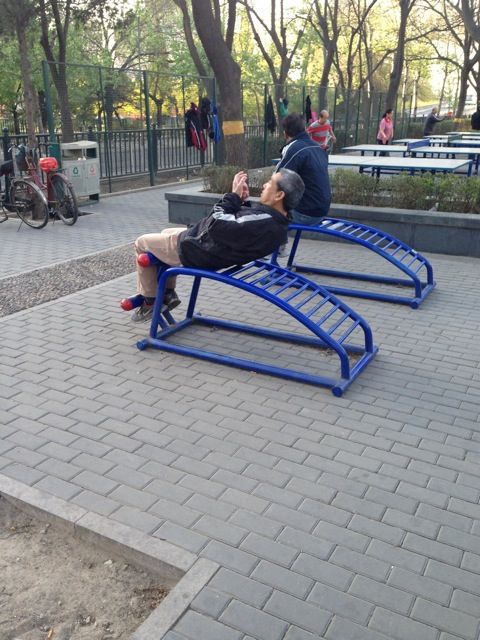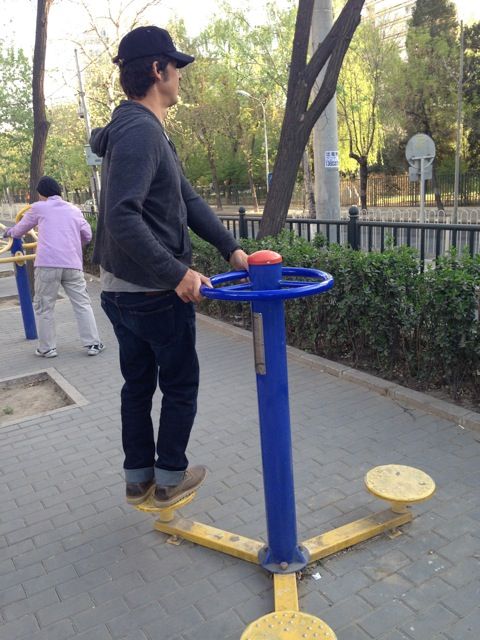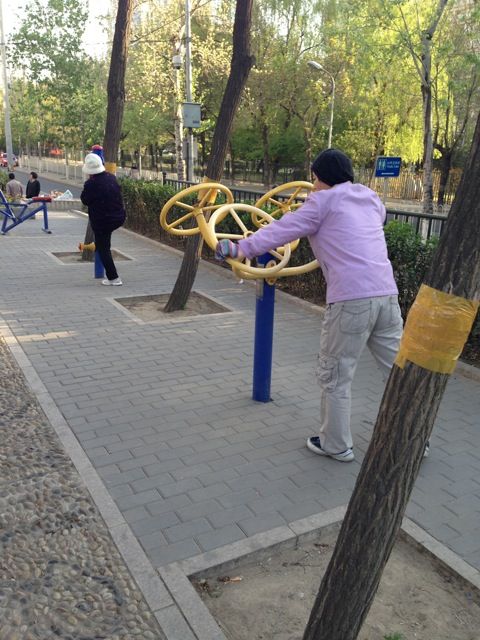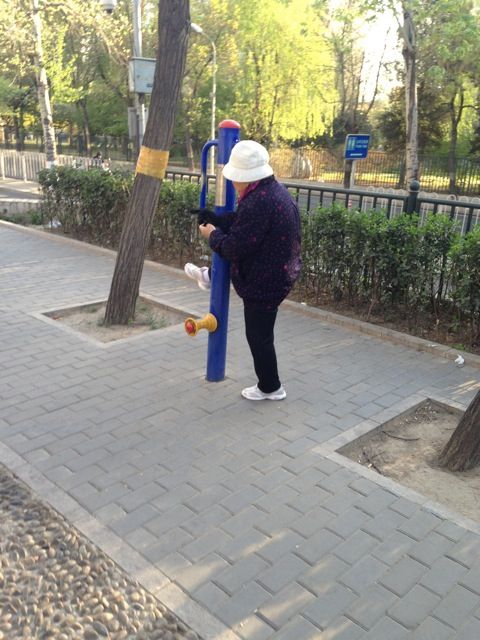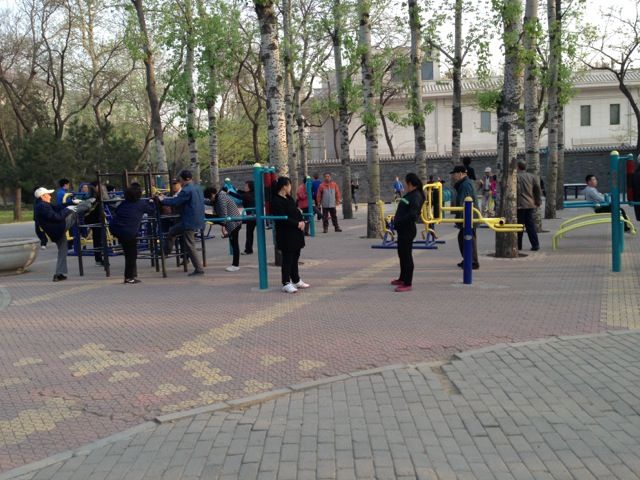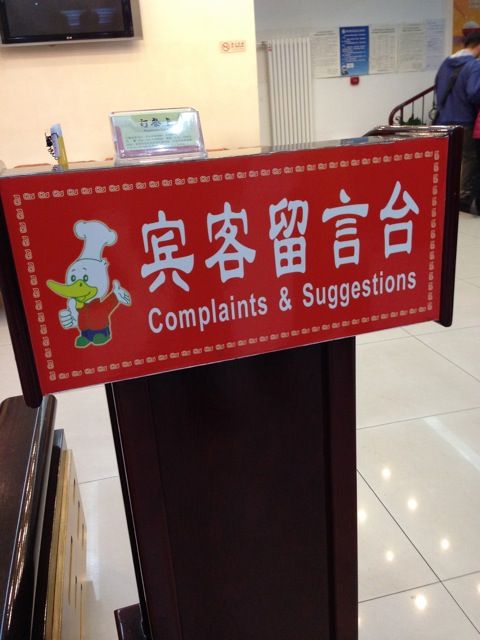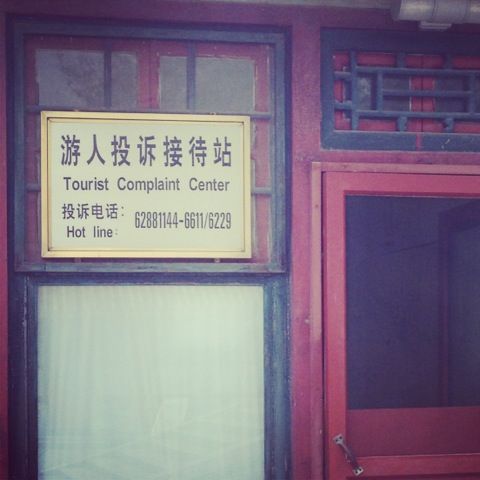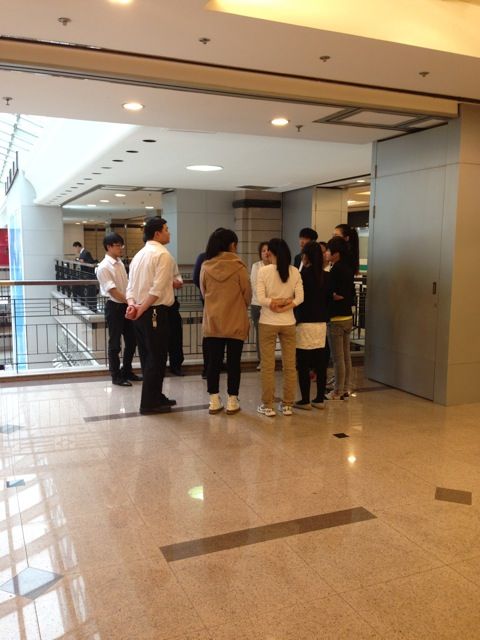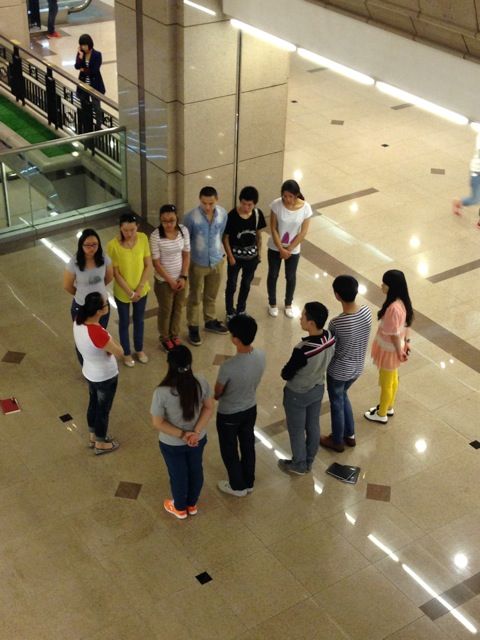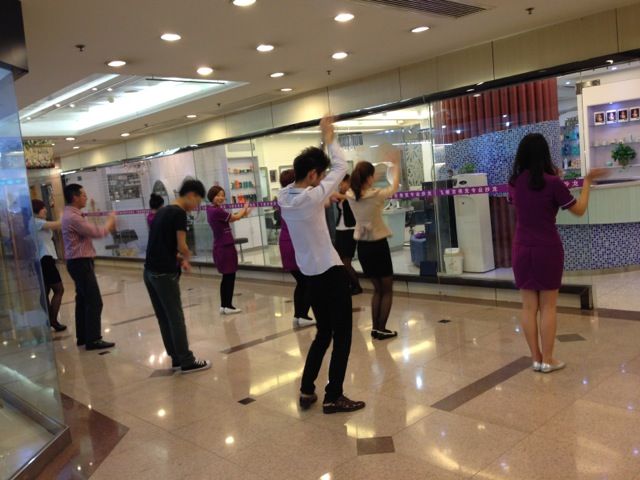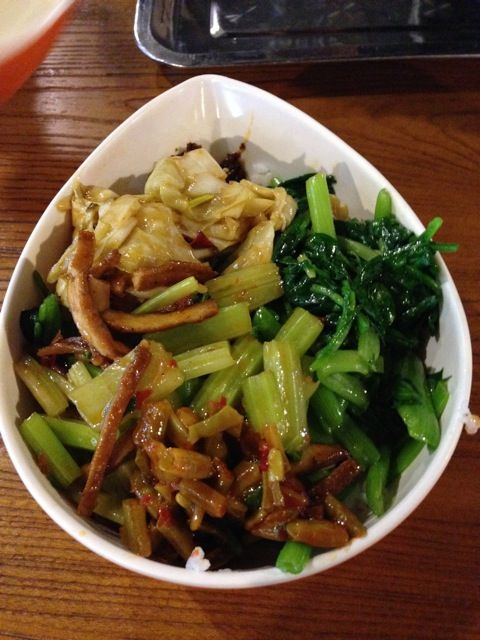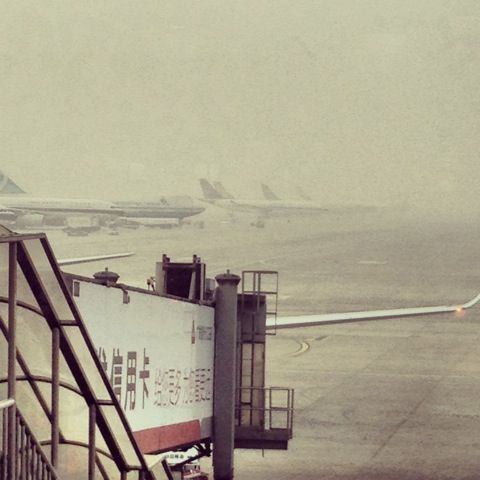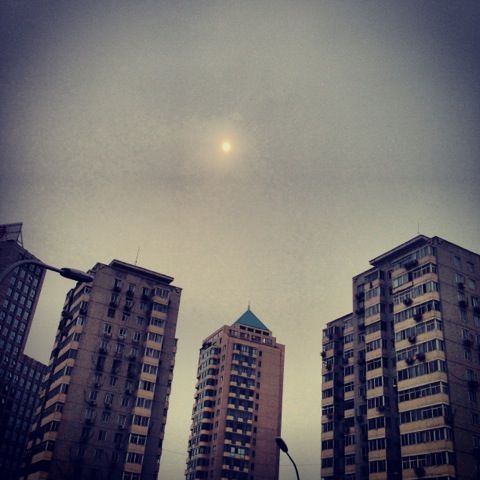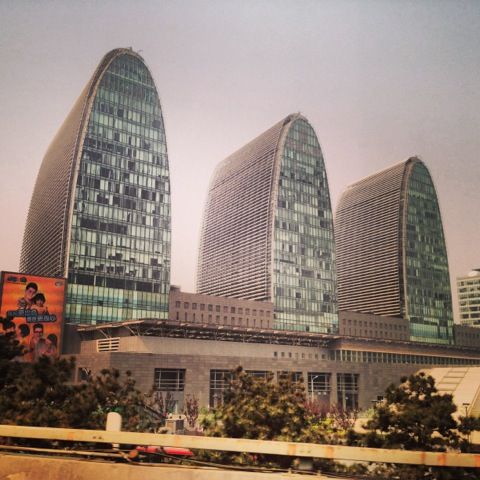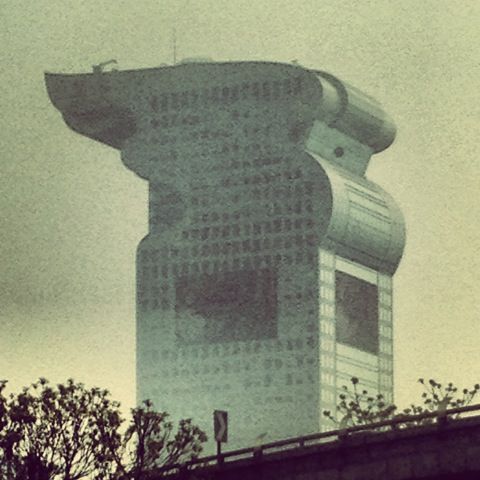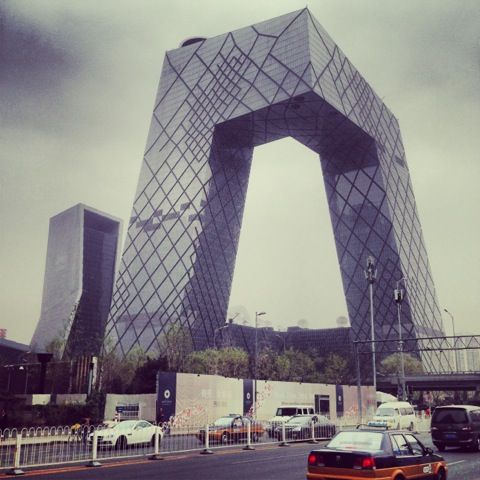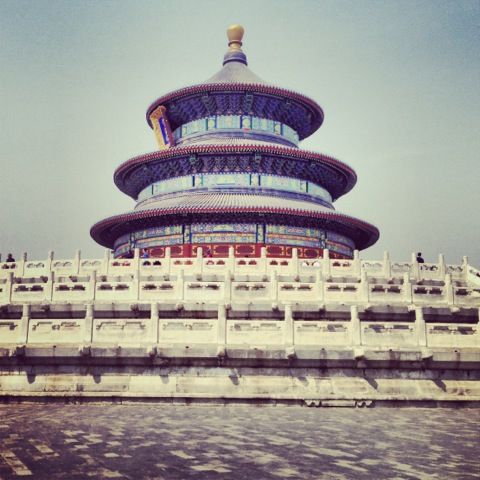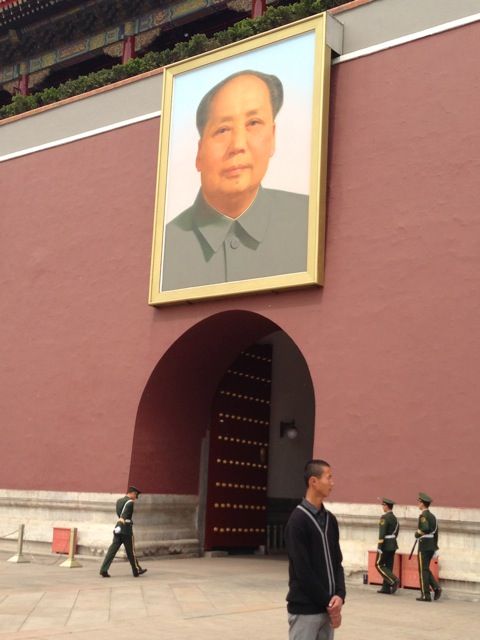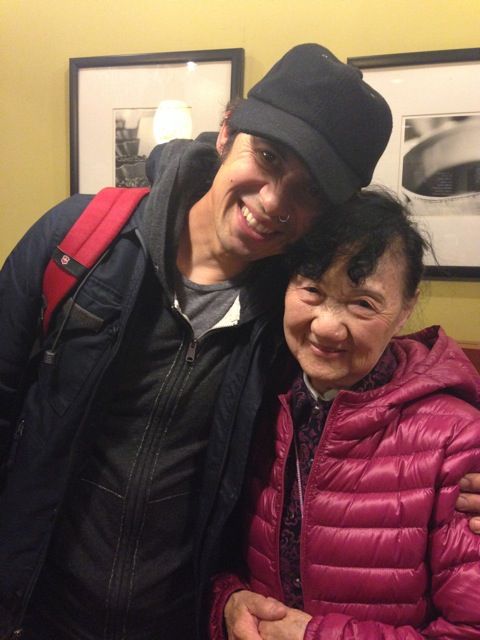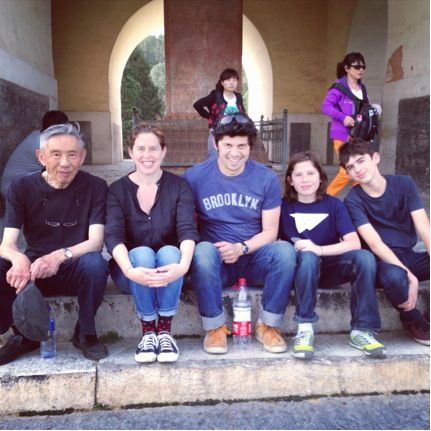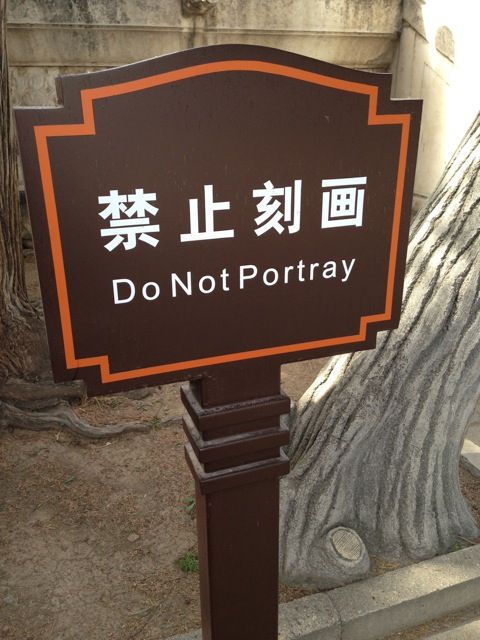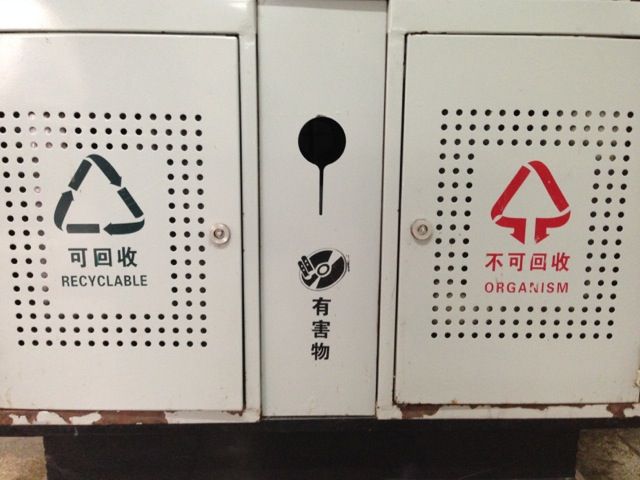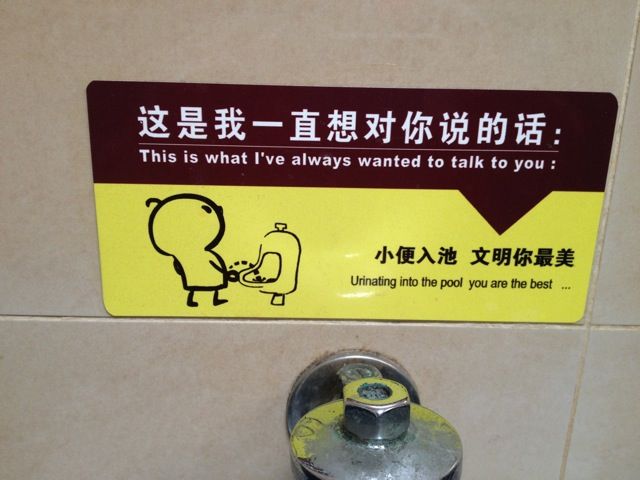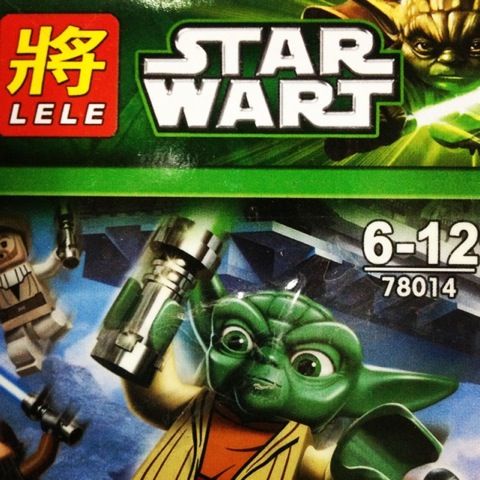CHINA!
| June 4, 2014
This post is written by our friend Sarah Caplan, who worked at Todomundo for many years on art and music projects. Some years ago she left and eventually moved to East Palo Alto, where she and her family live now.
Before going there, my knowledge of China was very limited—and probably a bit unconventional for an American. I grew up in a hippie household in the ‘70s, where my extremely left-leaning mom and her boyfriend hung posters around the house of Communism’s biggest stars: Marx, Lenin, Trotsky, Engels and Mao (with the obligatory feminist poster "Fuck Housework”). My sister and I jumped around to the Chairman Mao exercises in the morning; I still have the 45rpm record and an old Mao button.
My mom had explained the idea of “from each according to his ability, to each according to his need,” so Communism sounded pretty good to me as a child—although I didn’t like the part where everyone in the household had to do their equal share of work.
While working with David in the ‘90s, I met my awesome husband, Russell, who is half Chinese, half German, and who grew up in England. Russell’s dad, William, was born in China, but emigrated to England after a traumatic, war-torn childhood. He didn’t have the stomach to return until 50 years later. Now 83, he agreed to go one last time to show Russell, me, and our two sons the country of his birth. We stayed with his 84 year old sister, Lucy, in her small flat in a typical utilitarian 17-story concrete building in Beijing.
William and Lucy plotted out a jam-packed itinerary for us that included Tiananmen Square, the Summer Palace (my fave!), the Temple of Heaven, the Great Wall, the Ming Tombs, and the Forbidden City—as well as lots of jioazi (boiled dumplings) and Peking duck. Thank goodness William was with us since it’s almost impossible to get around without speaking Chinese. He was our tireless translator and guide.
Before leaving California, I was struck by the reaction I got when telling my friends we were off to Beijing for spring break. Some of them didn’t quite know what to say. It certainly sounded exotic, going all the way to China, but it didn’t have the same ring to it as Hawaii or Paris. It made me realize how little they (and I) knew about this vast, ancient, and powerful country. I really had no idea what to expect.
But there we went, and here are my impressions:
THE PARKS!
Beijing has great parks! People congregate early in the morning to chat, play music, stretch and exercise. It doesn’t seem to be about striving to attain the perfect body or being able to run a marathon, but more about general health and contentment. All sorts of equipment are available to use—rollers for massaging feet or backs, benches for sit ups, and various doodads for stretching, twisting, rocking… and lots of ping pong tables. The old folks seem to be in great shape (very stretchy and strong!), and it’s nice for them to have so many convenient places to socialize. By comparison, some older folks I know in California feel very lonely and cut off. They also can’t stretch their legs quite as high.
Click through the gallery below to see various exercise equipment:
Despite the fact that very few Beijingers speak English—apart from “Hello!” and “Obama!”—Russell was immediately invited to play ping pong to musical accompaniment. Some of the old folks had very beautiful, individual styles, and some whacked the ball with gusto — but it didn’t seem to be about crushing one’s opponent, rather a good way to get the blood moving and to have a laugh.
COMMUNISM WORKS!
Ok, that’s totally over simplified and naive, but I was really struck by the spin the U.S. puts on China and Communism and how it didn’t quite mesh with the reality — or our experience of it, anyway. It’s not THAT bad! Communism is practically a dirty word here in the U.S., and it seems like the Chinese are generally portrayed as oppressed worker bees. We blame China for spewing propaganda against the West, but it never occurred to me that we propagandize against them too!
I don’t mean to glorify China—there is that little issue of lack of freedoms of the press, religion ,protest and the whitewashing of the past. I even read that they have mobile execution vans! China isn’t strictly Communist anymore as it moves towards Capitalism but there are some very positive aspects of the Communist system that stood out for me.
1. Men and women seem pretty darn equal. I don’t know the statistics, but from what (little) I observed, it looked like women were highly valued in the workforce. Also, apart from the teens and 20-somethings, they dress much like the men and aren’t perceived as sex objects, or pressured to be attractive, as they are commonly in the U.S.
2. Most people have jobs. They may not be glamorous jobs, but they’re jobs. We saw fewer homeless people or beggars than we see in San Francisco (or did Beijing clean that up for the Olympics?). At any rate, current statistics indicate that the unemployment rate in China is 4.1, compared with 6.7 in the U.S.—and China has over four times as many people!
It’s definitely not all rosy. A worker at a tourist market told us she works 12 hours a day and gets one day off per month! And many of us have heard the horror stories about the factory conditions in China, such as the riots and suicides at Foxconn’s iPhone factories. It made me wonder what workers’ rights looked like in China, as compared to the strict labor standards of the U.S.? Yet, after coming home and driving past the farm workers (some of whom are children) in the pesticide-laced fields of California, and reading a recent NY Times article about using migrants in detention centers for cheap labor, perhaps our perception of our superior working conditions isn’t all that accurate…
3. There are a lot of toilets. And, for us non-Mandarin speakers, thank goodness most people know what “WC” means. While I wouldn’t necessarily call Beijing clean (see Smog, coming up), and people generously express the “better out than in” concept when it comes to other bodily functions, it was much more sanitary than India, where I traveled a few years ago. In Chennai there are, according to one source, 714 public toilets for 4.6 million people. There are very few in NYC for 8 million people. In Beijing, there are over 5,000 for 11 million people! They may not all be as comfortable as what we Americans are used to—as in little or no privacy, no toilet paper, and just a hole in the floor—but squatting is apparently better for the whole process, and many bathrooms have sinks for washing up.
4. Criticism/Self Criticism! At least for foreigners. I don’t know if they actually pay any attention to feedback, but there is ample opportunity for tourists to offer it up.
5. Team Huddles! Before the stores opened in a mall one morning, we observed workers having motivational huddles. After a little pep talk, they shouted in unison with fists in the air, or did some line-dancing. What a nice way for everyone to get on the same page, have a common goal, be organized, and have direction from a team leader. It seems to make work less about competition and the individual, and more about the group’s goals overall. Less ego.
Click through the gallery for snapshots of the morning huddle.
6. They definitely keep the West out. We didn’t see much Western music, TV shows or movies. And very few people speak English, which is so different from other countries I’ve visited. While the U.S. has much to offer in terms of freedom of expression and basic human rights, I could understand if our excesses might seem threatening. Sometimes I wonder where freedom ends and excess begins? It can seem like anything goes here, particularly gratuitous sex and violence in the movies and media. If China and the U.S. were parents instead of countries, and the citizens their children, one could imagine that China might not want its kids playing with the U.S.’s kids! I wouldn’t want them picking up bad influences. As it is, raising two teenage boys in the U.S., I find myself having to talk a lot about degrading portrayals of women and people of color in the media. Gun violence is also a terrifying reality. So in the end, I don’t know exactly the reason China strives to keep the U.S. influence out, but, for better or for worse, China feels like its own planet. To me, there were aspects that were refreshing!
PEOPLE ARE HEALTHY!
There are 11 million people in Beijing and although it felt like we saw every last one of them (it’s crowded!), I only saw one or two Chinese people who were overweight. Maybe it’s from all those exercise doodads in the park, but also the food is much healthier than your average American food. Here’s a plate of veggies on rice from a mall cafeteria (it cost about $1)—could you find anything like this in an American mall?
On the street you don’t see people munching on candy bars, chips, soda or other processed foods—instead they can be seen snacking on corn on the cob, a sweet potato, a tea egg, a cucumber, or an apple… things that actually grew on plants or came from an animal—not ten steps removed and processed.
They also have a lot of Traditional Chinese Medicine hospitals, so it appears that the ancient tradition works in tandem with the new.
THE SMOG
It's really smoggy. Our first day was lovely (“Moderate”) but after that the levels were in the Unhealthy/Very Unhealthy/Hazardous range, according to a handy app we had downloaded. (We were surprised to see a slight discrepancy between the two readings given, from the city of Beijing itself and the U.S. Consulate—with Beijing’s reading being typically worse! Were they being more honest?) Many people wear masks (some of which are designed to look fashionable) and we got sore throats and teary eyes. When asked, most people said they were used to it and didn’t mind. And they smoke, to boot! (Ok, so maybe they’re not as healthy as they appear…) But I was amazed when one educated woman we met said she wasn’t sure why there was so much smog in Beijing. Was she not aware of the increase in industrialization, cars, and coal burning because she wasn’t interested, or because the media doesn’t talk about it? I wasn’t clear on that...
THE ARCHITECTURE
What the heck? Beijing buildings can be truly wacky and don’t always appear to be part of the international architectural dialogue with familiar references—rather, more of its own private conversation. I think I prefer the ancient stuff.
Click through the gallery below for an architectural tour.
MAO
We watched Bertolucci’s The Last Emperor before we went, so Mao’s gigantic portrait, smack on the front of the entrance to the Forbidden City, made quite an impact. It really came across as, “The People Have Spoken!” But of course, there’s always the irony of the revolutionary leader becoming as deified as the king. We didn’t see his mausoleum, but apparently Mao's embalmed body rises from an earthquake-proof crypt 1/4 mile below the ground daily for viewing, and then is lowered again. We also heard that during his life, Mao didn’t brush his teeth, rarely bathed, considered sex a way of washing himself, performed his bodily functions in the exquisite gardens of the Forbidden City, and other unmentionables… Not sure if any of that is true, but I didn’t really want to think about that while gazing at the beautiful peonies in the gardens there.
AUNTIE LUCY
I had very interesting, extensive talks with Russell’s Aunt Lucy. Having been born into an upper middle-class family, sometimes carried about in sedan chairs (!), one would assume she might be bitter about Communism’s attempt to level everyone to the same status. However, I found her to be quite content and proud of Communism. (The transition is referred to by everyone as The Liberation.) In the old time, Lucy’s mother’s feet had been bound, and to quote William from an account he wrote of his life, “Illiterate women were seen as virtuous!” So although Lucy experienced great hardship during the Cultural Revolution, I wondered what her life might have been like had it not happened? Would her feet have also been bound, and would she be illiterate, having to defer to men her whole life? In talking with me, it was clear she was very proud to be the matriarch of four generations of women, a view that is still not always shared by her fellow countrymen—and is hopefully changing—but one that is certainly distinctive from the past.
CONCLUSION
What stood out the most for me about visiting Beijing was the skewed view of China that I had acquired growing up the U.S. While condemning their human rights and environmental abuses, we might also open ourselves to learning from China—particularly about food, exercise and health (integrating the traditional with the new), working as a team, and providing for elders.
All in all, it was a fascinating, heartwarming and mind-expanding trip and we can’t wait to go back and see more.
CHANGLISH
Of course, no trip to China is complete without entertaining Chinese-to-English translations on signs and packaging.
Click below for a gallery of funny translations we came across.
